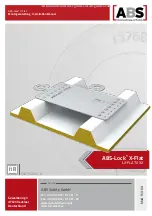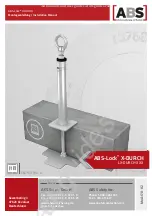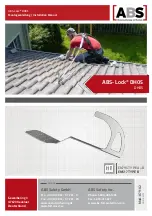
442246_a
31
Safety instructions
3.1
General safety
instructions for power
tools
WARNING!
Read all safety instruc-
tions, instructions, illus-
trations and technical
data that are provided
with this power tool.
Failure to comply with the
following instructions can
lead to an electric shock,
fire and/or series injuries.
■
Keep all safety instruc-
tions and other instruc-
tions for future refer-
ence.
The term "power tool" used in
the safety instructions refers to
mains-operated power tools
(with mains line) and to battery-
operated power tools (without
mains line).
3.1.1 Electrical safety
■
The connection plug of the
power tool must fit into the
socket. The plug is not al-
lowed to be changed in any
way. Do not use any plug
adapters together with
earthed power tools.
Un-
modified plugs and matching
sockets reduce the risk of
electric shock.
■
Avoid physical contact with
earthed surfaces such as
on pipes, heaters, cookers
and refrigerators.
There is
an increased risk of electric
shock if your body is earthed.
■
Keep electrical tools out of
the rain and away from
moisture.
Water getting into
an electrical tool increases the
risk of an electric shock.
■
Do not use the cable for in-
correct purposes such as
carrying the electrical tool,
hanging it up or for pulling
the plug out of the socket.
Keep the cable away from
heat, oil, sharp edges or
moving parts.
Damaged or
tangled cables increase the
risk of an electric shock.
■
If you are working outside
with a power tool, only use
extension leads that are al-
so suitable for outdoor use.
Using an extension lead that
is suitable for outdoor use re-
duces the risk of electric
shock.
■
If the operation of the power
tool in a humid environment
cannot be avoided, use a
fault current circuit breaker.
Using a fault current circuit
breaker decreases the risk of
electric shock.
















































